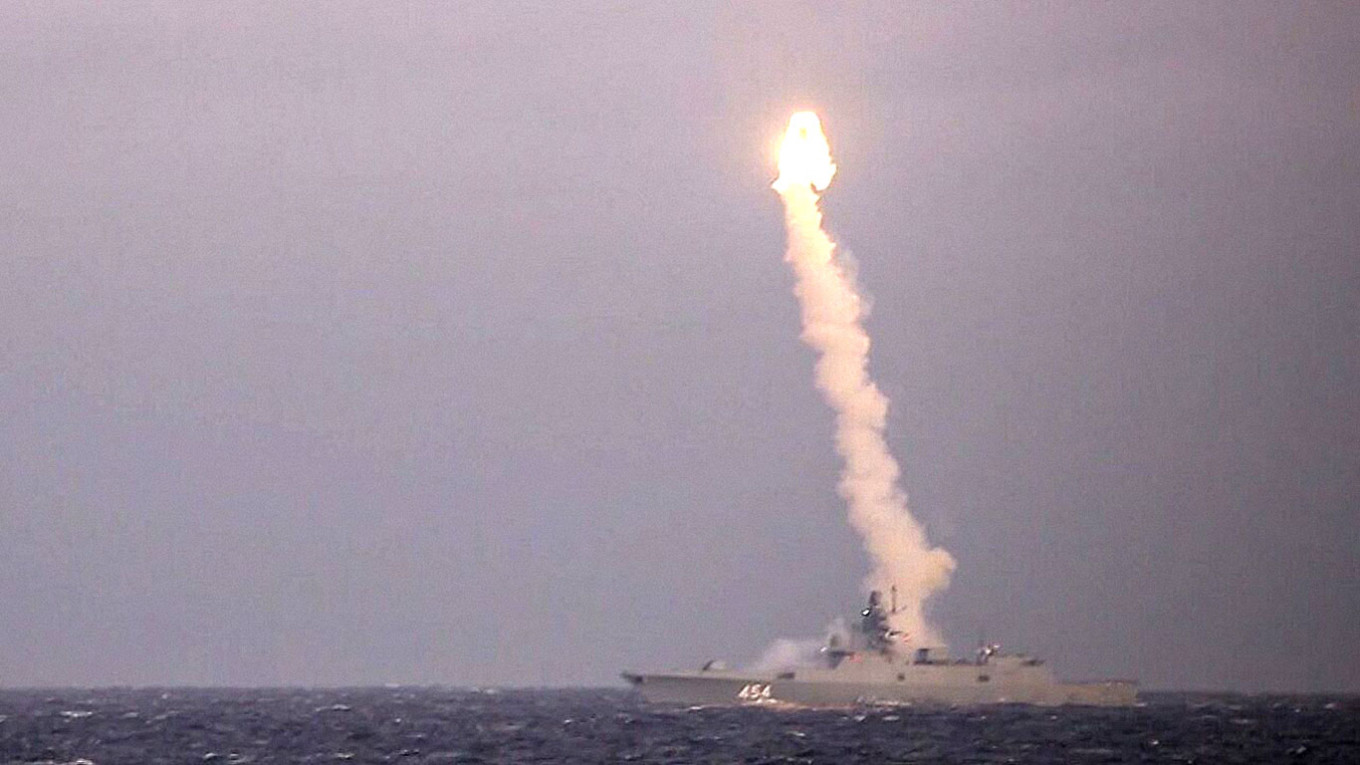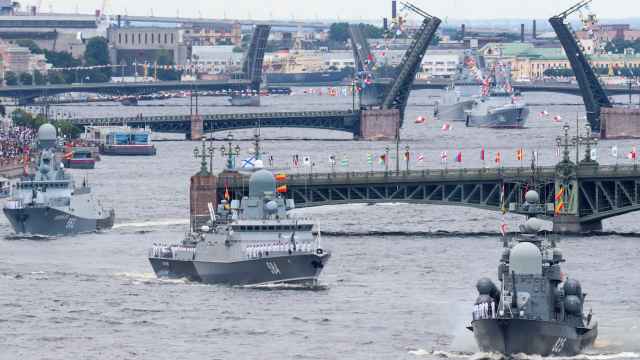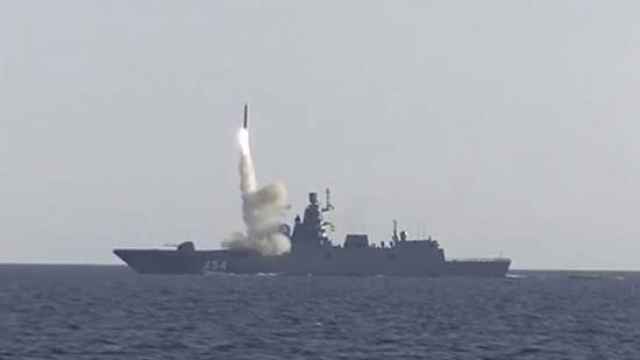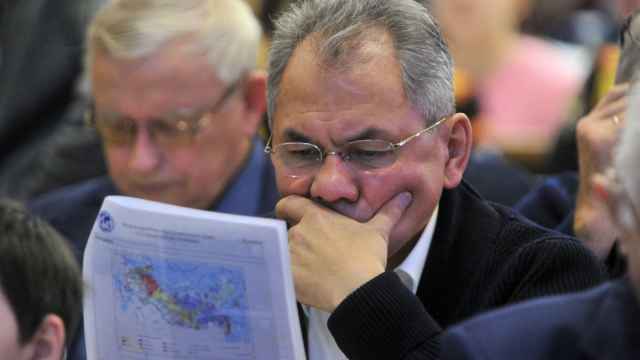Russia said Monday it had carried out another successful test of its Tsirkon hypersonic cruise missile, as world powers race to develop advanced weaponry.
Russia, the United States, France and China have all been experimenting with so-called hypersonic glide vehicles — defined as reaching speeds of at least Mach 5.
As part of "the completion of tests" of Russia's hypersonic missile weapons, the Admiral Gorshkov warship launched a Tsirkon missile at a target in the Barents Sea at a range of 400 kilometers, the Defense Ministry said.
"The target was hit," the ministry said, describing the test as successful.
The missile has undergone a number of recent tests, with Russia planning to equip both warships and submarines with the Tsirkon.
Putin revealed the development of the new weapon in a state of the nation address in February 2019, saying it could hit targets at sea and on land with a range of 1,000 kilometers and a speed of Mach 9.
Russia's latest Tsirkon test came after Western reports that a Chinese hypersonic glider test flight in July culminated in the mid-flight firing of a missile at more than five times the speed of sound over the South China Sea.
Up until the test, none of the top powers had displayed comparable mastery of a mid-flight missile launch.
China denied the report, saying it was a routine test of a reusable space vehicle.
Russia has boasted of developing several weapons that circumvent existing defense systems, including the Sarmat intercontinental missiles and Burevestnik cruise missiles.
Western experts have linked a deadly blast at a test site in northern Russia in 2019 — which caused a sharp spike in local radiation levels — to the Burevestnik nuclear-powered cruise missile.
A Message from The Moscow Times:
Dear readers,
We are facing unprecedented challenges. Russia's Prosecutor General's Office has designated The Moscow Times as an "undesirable" organization, criminalizing our work and putting our staff at risk of prosecution. This follows our earlier unjust labeling as a "foreign agent."
These actions are direct attempts to silence independent journalism in Russia. The authorities claim our work "discredits the decisions of the Russian leadership." We see things differently: we strive to provide accurate, unbiased reporting on Russia.
We, the journalists of The Moscow Times, refuse to be silenced. But to continue our work, we need your help.
Your support, no matter how small, makes a world of difference. If you can, please support us monthly starting from just $2. It's quick to set up, and every contribution makes a significant impact.
By supporting The Moscow Times, you're defending open, independent journalism in the face of repression. Thank you for standing with us.
Remind me later.






